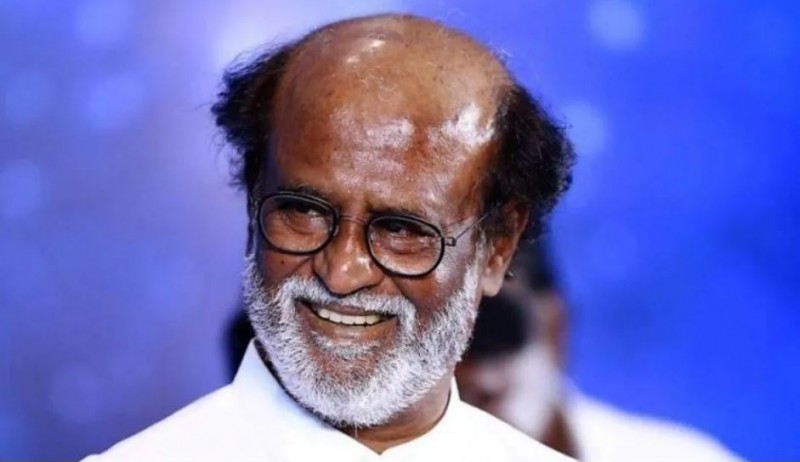
Rajinikanth, whose real name is Shivaji Rao Gaikwad, was born on December 12, 1950, in Bangalore, Mysore State (now part of Karnataka), India. He was born into a Marathi-speaking family and was named after the Maratha warrior king, Chhatrapati Shivaji. His hometown is Maavadi Kadapathar, which is located in the state of Maharashtra. However, Rajinikanth's upbringing took place in Karnataka, where his family relocated to Bangalore after his father's retirement from the police department in 1956. Rajinikanth's father, Ramoji Rao Gaikwad, worked as a constable in the police department, and his mother, Ramabai, was a homemaker. Rajinikanth had three siblings: two elder brothers, Satyanarayana Rao and Nageshwara Rao, and an elder sister named Aswath Balubai.
The family faced financial difficulties, and Rajinikanth had to start working at a young age to support them. He took up various low-paying jobs to make ends meet, including working as a coolie (manual laborer) at a railway station. Later, he also started working as a carpenter, crafting furniture for households. Despite these jobs, the family struggled financially. Rajinikanth's life took a turn when he got a job as a bus conductor in the Bangalore Transport Service (BTS). This job provided him with a better income than his previous jobs, and it was considered a significant achievement at the time.
While working as a bus conductor, Rajinikanth was offered a role in a Mythological play by Kannada playwright Gopi Munipaa. He accepted the offer and began acting in various plays. During this time, he heard about the Madras Film Institute and decided to pursue acting seriously. However, his family was initially against this decision. Rajinikanth's friend Raj Bahadur supported him both emotionally and financially during this period. Rajinikanth joined an acting school with Raj Bahadur's help and began learning the art of acting.
During his training at the Madras Film Institute, Rajinikanth played the role of Duryodhana in a play, which caught the attention of director K. Balachander. Balachander was impressed with Rajinikanth's performance and offered him a role in the Tamil film "Apoorva Raagangal." In this film, Rajinikanth played a supporting role alongside the lead actor Kamal Haasan. The film received three National Awards, and Rajinikanth's performance was noted for its impact. This marked Rajinikanth's debut in the film industry.
In the initial phase of his career, Rajinikanth often played negative or supporting roles in films. He portrayed characters such as rapists, womanizers, and pornographers. His second film, "Katha Sangama," was a Kannada film in which he played the role of a rapist. His third film, "Anathalenni Katha," was a Telugu film, and he played an important role in it. His fourth Tamil film, "Moondru Mudichu," gave him a significant role, although Kamal Haasan was the lead actor. In "Moondru Mudichu," Rajinikanth was cast in a negative role. During this time, Rajinikanth struggled with alcohol addiction, but director K. Balachander helped him overcome this by providing guidance and support. Rajinikanth eventually quit drinking.
Kamal Haasan advised Rajinikanth to focus on playing lead roles rather than supporting or negative characters if he wanted to become a successful hero. Following this advice, Rajinikanth appeared in the Kannada film "Balu Jenu" in a negative role. However, his career took a significant turn when he played the lead role in "Bairavi" (1978), a Tamil film. This marked the beginning of Rajinikanth's journey as a lead actor, and he soon became a sensation in the South Indian film industry.
By 1980, Rajinikanth had acted in over 50 films in Tamil, Telugu, and Kannada languages. Many of his films were box office hits, and his unique style and acting skills gained him a massive fan following. He became a cultural icon and a beloved superstar in the South Indian film industry.
In conclusion, Rajinikanth's journey from a humble background to becoming a legendary actor in the Indian film industry is a remarkable story of determination and talent. His early struggles and the support of his friends and mentors shaped his career, and he went on to achieve immense success and stardom. Rajinikanth's legacy continues to inspire aspiring actors and remains an integral part of Indian cinema.
From Sydney to Mumbai: The Cultural Transmutation of 'You're the Voice' in 'Mera Dil Tere Liye'